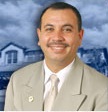How Do You Know When a Teacher is Valuable?
Rating teacher performance may not be what it seems.
Norwalk, California, Sep. 27:
Assemblymember Tony Mendoza (D-Norwalk)
“Value added” scores are being used to evaluate teachers in California schools. Administrators look at student test scores, and if scores in a class increase, the teacher gets points because they are perceived to have added value. People think this approach is one more way to rate teachers and how well they are educating our youth. But this new ranking system is not what it appears to be, and can be very misleading.
The “value added” approach does not take materials or resources into account. Schools with access to more materials, programs, staff and support are going to affect student learning and how well a teacher can do his or her job. Teachers at schools with fewer materials and less resources experience unbalanced school days, scripted programs and more responsibility.
The “value added” perspective also does not account for parental involvement. Parental involvement is a significant factor in improving student performance. But many parents simply do not have the time to be as involved as they would like with their children’s school work. This could artificially inflate or deflate a teacher’s “value added” score and no one would know the difference.
Many factors are taken for granted with “value added” teacher evaluation, such as a supportive principal and a strong administration. A supportive school board and superintendent also make an impact on how well and easily a classroom is run. A strong and involved principal, school board and superintendent translate to more efficient and effective classrooms, and all of those factors influence “value added” scores.
Lastly, the environment of a school matters. If students are located in neighborhoods where they are distracted by incidents such as lock downs and gang shootings, less work gets done in the classroom. Children in volatile environments will not be able to focus and improve in the same ways as students in more stable environments.
The idea of “value added” teacher scores and evaluations are misleading and wrong. These scores present a limited view of teaching and learning, and can trick parents and the public into believing teachers are doing a better or worse job than they actually are.
California standards tests do not measure student growth, and it is unfair and short-sighted to judge teachers based on students’ performance on such tests. When it comes to judging teachers based on whether students’ standardized test scores have improved, I urge you to stop and think about all the factors that might affect scores, and to ask yourself what “value added” really means.
Sunil Kumar, an Indian American management guru, has been named the new head of the University of Chicago's prestigious Booth School of Business.
Currently the senior associate dean of academic affairs at Stanford University's Graduate School of Business, Kumar, 42, succeeds Edward Snyder, who stepped down in June and will run the Yale School of Management, in New Haven, Connecticut, starting next year.
Kumar will begin a five-year term as dean on Jan 1, the University of Chicago announced Wednesday.
At Stanford, Kumar oversees the master's of business administration programme. He is also a professor of operations, information and technology.
Kumar, who was born in India, received a Ph.D. in electrical engineering from the University of Illinois at Urbana-Champaign, and has taught at Stanford since 1996.
Kumar "brings the right blend of vision, entrepreneurial energy and academic leadership that will build on the contributions of Chicago Booth at a time of tremendous momentum and achievement," University of Chicago President Robert Zimmer and Provost Thomas Rosenbaum said in a statement.
Kumartold the Wall Street Journal his role at Chicago will be as a gatekeeper for what the school has already accomplished. "This is an institution that is already in terrific shape."
"My basic mission is to strengthen and enhance what is already great." Meanwhile, he says he will take time to learn "about the students, faculty and the programmes."
John Huizinga, chairman of the business school's dean search committee and an economics professor at Chicago, says the school was looking for a dean who could preserve the school's resources-retaining key faculty, for example-without settling too comfortably into school's already lofty position.
"If you have the right outsider, it can be a great benefit," Huizinga said. "Sunil has the key decision-making skills, acquires the necessary amount of information before he acts and is inclusive. He's the whole package."
Kumar is the first dean in many years who does not have a background or degree in economics or finance.
Kumar's non-traditional background lends itself well to promoting Chicago's lesser known attributes, such as its entrepreneurship and marketing programmes, Huizinga said. "[Kumar] will be effective in communicating our strengths in multiple areas outside economics," he said.


